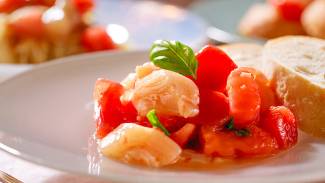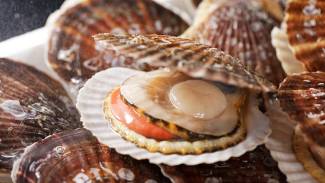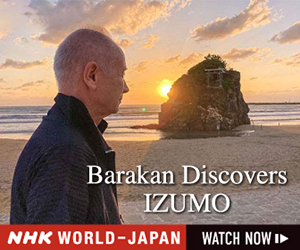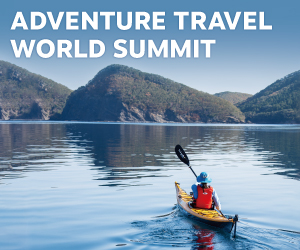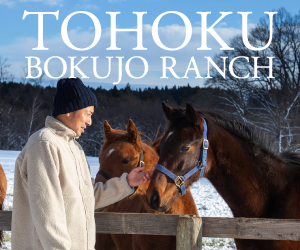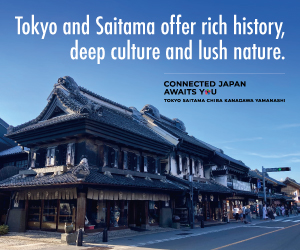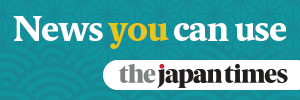GLOBAL REACH
SUPPLYING THE WORLD
SUSTAINABLE FUTURE FROM SEA TO TABLE
The MSC certification of Hokkaido’s scallop fishery reflects its sustainable practices and global growth vision
In the pristine waters surrounding Hokkaido, a centuries-old tradition has evolved into one of the world’s most well-managed and sustainable fisheries. Hokkaido scallops, known for their rich flavor, are not only a staple of Japanese cuisine, but have also gained a loyal following overseas. Central to their international appeal is the fishery’s commitment to sustainability, demonstrated by the certification from the Marine Stewardship Council.
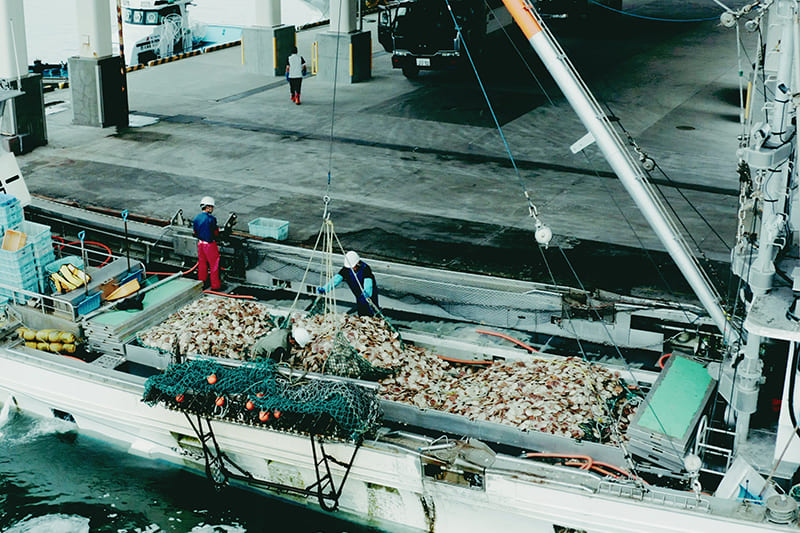
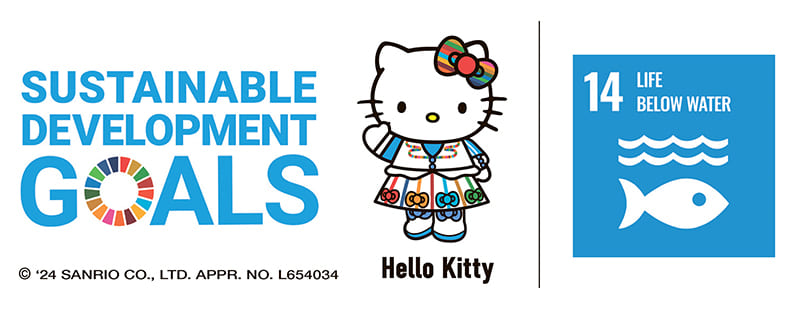
DOGYOREN
MSC standard
The MSC Fisheries Standard is an internationally recognized benchmark for assessing whether fisheries are well-managed and sustainable. Established by the MSC, the certification is a mark of environmental responsibility and reflects a fishery’s commitment to preserving marine ecosystems.
To gain certification, fisheries voluntarily apply for and undergo rigorous evaluations by independent third-party auditors not affiliated with the MSC. The assessments are based on three fundamental principles. The first is ensuring that fish stocks are sustainable, meaning that fish populations are maintained at levels that allow for ongoing harvesting without depleting the species, guaranteeing long-term viability. The second is requiring fishing operations to have minimal environmental impact by having the operations carefully managed to maintain the structure, productivity, function and diversity of the marine ecosystem. The final principle requires fisheries to have effective management. This means having adaptive systems in place to respond to changes in the status quo while ensuring responsible and sustainable fishing. Together, these principles form the foundation of the MSC certification, reflecting the most current understanding of sustainable fisheries management.
Once certified, the fisheries can display the distinct blue MSC label on seafood packaging, assuring consumers that the seafood they’re purchasing has been sourced from a sustainable and well-managed fishery. This label has gained prominence in markets such as the United States and Europe, where consumers are increasingly prioritizing sustainability in their purchasing decisions.
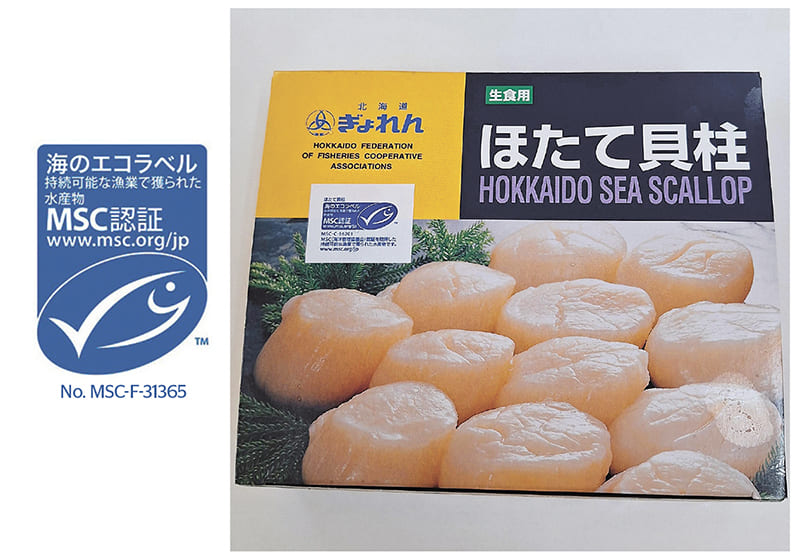
DOGYOREN
Journey to certification
The Hokkaido Federation of Fisheries Cooperative Associations, commonly known as Dogyoren, has long recognized the value of sustainable fisheries. In 2010, Dogyoren embarked on the arduous path toward MSC certification for the island’s entire scallop fishery as a whole. After three years of intense assessments, in 2013, their efforts were rewarded as the Hokkaido scallop fishery achieved MSC certification, making it the largest certified scallop fishery in the world. In 2012, the certified area harvested a staggering 410,000 metric tons of scallops, a testament to the fishery’s scale and efficiency.
The certification covers three distinct operations. These are spat (wild juvenile scallop) collection, hanging cultivation and seabed ranching with dredge cultivation.
Hanging cultivation is conducted along the coasts of Funka Bay and the Sea of Japan, while seabed ranching occurs in the Sea of Okhotsk and the Nemuro Strait. Each of these operations collects spat from the wild and cultivates scallops in waters between 15 and 50 meters deep, extending up to 10 kilometers offshore.
Takanori Uda, deputy director at Dogyoren, explained the challenges faced during the certification process: “The most difficult part was the field research. Scallop fishing in Hokkaido is widely practiced along the coasts of the Sea of Japan and the Sea of Okhotsk. Since the survey covered the entire sea area, the work of visiting each sea area one by one, photographing the undersea environment, and accumulating data on the marine environment continued for nearly 15 years.”
Thanks to the MSC certification, Hokkaido scallops are now eligible to bear the blue MSC label, enhancing their desirability in global markets. With nearly half of the regional catch exported, key destinations include the U.S., Taiwan and Europe. This international certification has opened the doors for Hokkaido scallops to gain a foothold in the increasingly competitive global seafood market.
Sustainable legacy
The history of scallop fishing in Hokkaido stretches back to the late 1800s. By the early 1900s, the fishery had embraced mechanical advancements, reaching an annual catch of 80,000 metric tons. However, this success was short-lived, and by the 1950s, catch levels had plummeted. In response, the fishery adopted innovative practices, including seed production and intermediate cultivation, to restore and manage the scallop population. By 1975, annual landings had rebounded to 70,000 metric tons and today the Hokkaido scallop fishery maintains a stable harvest of about 400,000 metric tons.
This success is not due to luck but a result of meticulous resource management.
Yoshihisa Kawasaki, director at Dogyoren, said: “We are not forcing ourselves to maintain a 400,000-ton target. Each association manages its own resources and determines the optimum volume of scallops to be landed. The resource environment and landings vary greatly depending on the time of year and region, such as the state of growth of juvenile shellfish and weather conditions.”
The cooperative system allows each region to tailor its fishing practices to local conditions, ensuring that their populations are not overexploited and that the marine environment remains healthy.
“Scallop fishing is like farming. It depends on the condition of the field. If the field is in poor condition, the scallops will not grow even if the seeds are sown. They adjust the conditions of the fields as they survey them,” Kawasaki said, emphasizing the careful balance between cultivation and harvest.
Facing future challenges
While MSC certification is a mark of achievement, it is not a permanent status. Fisheries must renew their certification every five years and continue to meet the rigorous standards required to maintain it. As the global climate changes, new challenges arise. Increased precipitation, plankton blooms and outbreaks of shellfish contamination are all potential threats to the Hokkaido scallop fishery.
“To maintain certification even in the face of such changes, we will not be satisfied with the status quo but will continue to make efforts and search for areas for improvement,” Uda said. Dogyoren is committed to ongoing research and adaptation, ensuring that the fishery remains sustainable despite environmental fluctuations.
The Hokkaido scallop fishery’s efforts are also aligned with Japan’s commitment to the United Nations sustainable development goals, particularly No. 14, which focuses on conserving and sustainably using the oceans and marine resources. Sustainability is a guiding principle in Dogyoren’s operations, which encompass sales, purchasing, guidance and the use of facilities and equipment. The cooperative has also spearheaded local environmental initiatives, such as beach cleanups and tree-planting campaigns, to help preserve the ecosystem.
On the global stage
With nearly half of Hokkaido’s scallops exported, its fishery is not only a key player in Japan’s economy, but also a vital contributor to global seafood markets. Maintaining the quality and safety of these scallops is paramount, as any breach could damage the fishery’s reputation both domestically and internationally.
Kawasaki emphasized the importance of reputation, saying: “Even one accident can damage the reputation of Hokkaido’s scallops. Behind the fact that scallops are now eaten around the world and scallop fishing has grown into one of Hokkaido’s largest economic enterprises are the efforts of our predecessors who have been carrying out safety management to an exaggerated degree for decades. We would like to continue to honor this legacy and pass it on to the next generation.”
Looking ahead, Dogyoren is focused on maintaining the highest safety standards and promoting the quality of Hokkaido scallops to overseas markets. As global demand for sustainable seafood continues to rise, the fishery’s MSC certification will play a pivotal role in expanding its market presence in Europe, the U.S. and beyond.
The Hokkaido scallop fishery had a rich history of sustainability and innovation, long before these concepts became central to global seafood industries. By securing MSC certification, Dogyoren has positioned itself as a leader in sustainable practices, ensuring that Hokkaido scallops remain a premium product for years to come. Through its commitment to environmental stewardship, responsible resource management and continuous improvement, the cooperative not only supports the local economy, but also contributes to the global movement toward sustainable seafood. As the world becomes more focused on responsible consumption, Hokkaido scallops are poised to shine on the international stage, offering consumers both quality and peace of mind.



